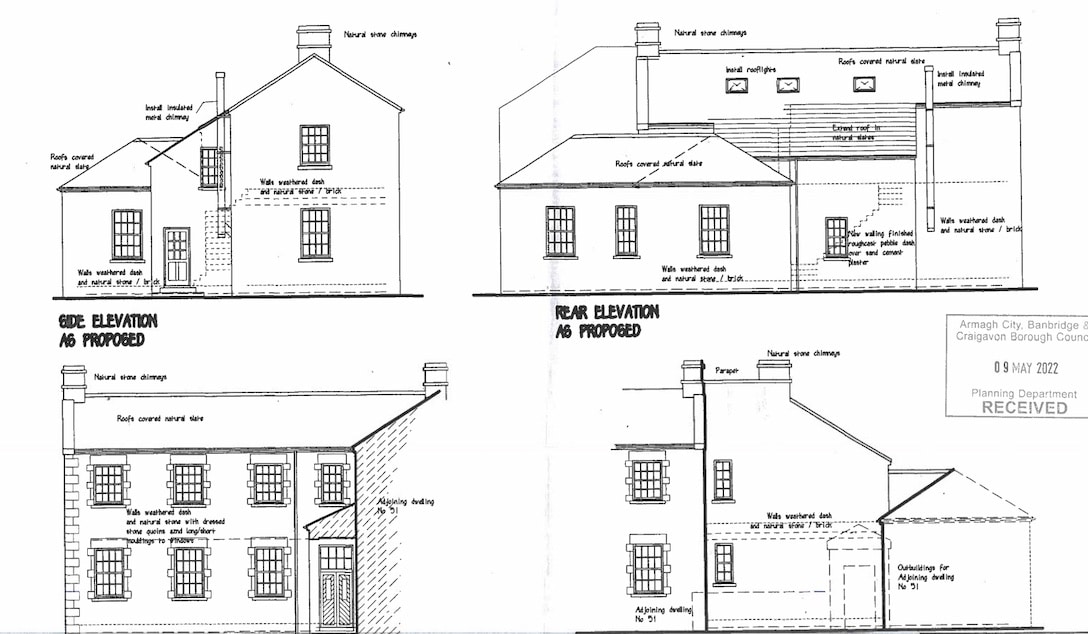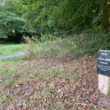
A planning application for the conversion of a former schoolhouse into a dwelling in Middletown has been turned down, in part because the 1830s building was once a ‘Fever Hospital’ where many would have died, making it a site of major archaeological value.
The application was for the conversion of the derelict building into a two-storey home with a rear extension at 51 Main Street. It had been lodged by David Parkes, Middletown, with agent CDA-NI, Armagh, representing him.
Back in August 2022, a development management officer’s report had looked upon the planning application quite favourably, however, more information on a number of points was needed: “The application site is located at 51 Main Street, Middletown, which is a two-storey derelict school house attached to a two-storey dwelling.
“The aforementioned school house has fallen into a state of disrepair, with windows broken and boarded up, and roof slates dislodged. It is considered that the conversion of the derelict school house would be appropriate to the site’s character and its surrounding area.
“DfI (Department for Infrastructure) Roads has stated in their consultation response that they have no objections to the proposed development ‘given its status as a conversion of an existing vacant school’. To date, the required ecological information has not been submitted.
“Bats are a statutorily protected species, and it has not been demonstrated during the course of the planning application that the proposed development is not likely to harm them.
“As insufficient information has been submitted to establish whether the development would harm protected species, refusal is recommended.
“The Environmental Health Department (EHD) D is unable to provide a substantive response due to potential noise and odour nuisance upon the subject dwelling from [a nearby] wastewater treatment works.”
In correspondence to Armagh, Banbridge and Craigavon Council, the Historic Environment Division (HED) of the Department for Communities (DfC) explained the site in question was sensitive because of its history: “This site is recorded as a ‘Fever Hospital’ (1830s) and as such there is an increased potential for uncovering buried archaeological remains, including human remains, associated with its former use during site works.
“HED (Historic Monuments) is concerned that archaeological remains may be uncovered during site works. Please advise the applicant/their agent that archaeological surveillance will be undertaken by HED archaeologists.
“No site works of any nature or development shall take place until arrangements have been made and agreed with the Department for Communities to ensure that any archaeological remains which may exist within the application site are identified and recorded.”
A senior planning officer explained to the applicant, in correspondence dated December 8, why the planning application had been refused: “Having notified the applicant that additional information by way of concerns regarding natural heritage is required and having not received this information, the council refuses this application as it is the opinion of the council that this information is material to the determination of this application.
“It has not been demonstrated that the proposal, if permitted, would not be adversely affected by reason of odour and noise from the nearby waste water treatment works.”



